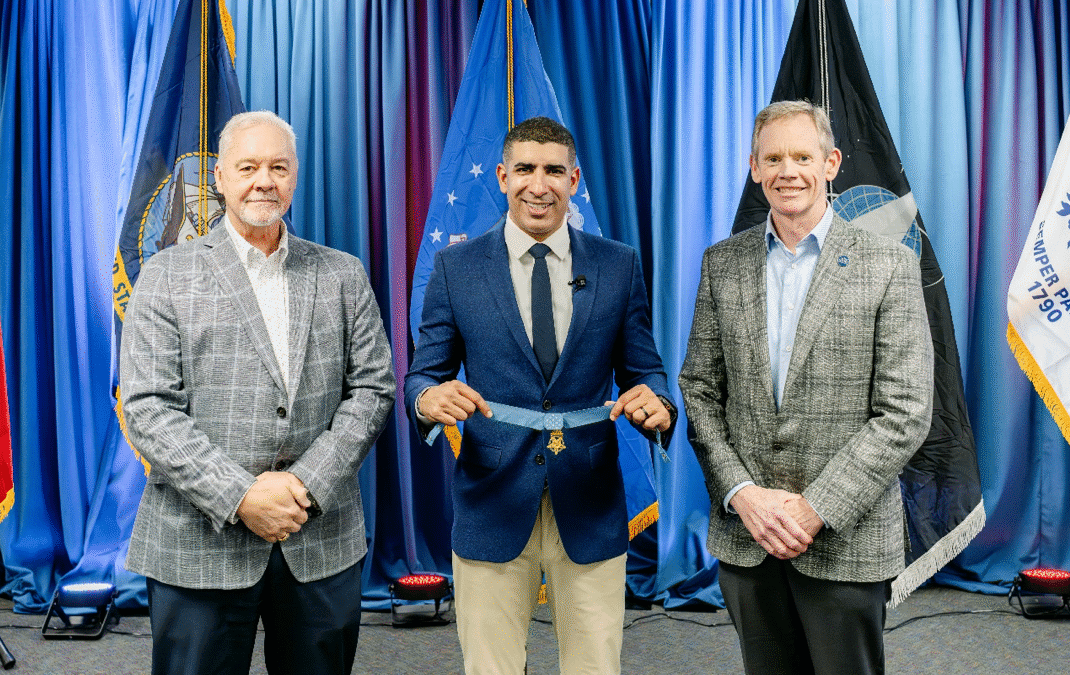Major college football has a lot going for it right now.
There’s passion, pageantry and intrigue. There’s big brand names, whether we’re talking players, coaches or schools. There’s high-profile (and now highly paid) athletes and coaches and more eyeballs glued to screens to watch the game’s biggest stages than ever before.
There’s forward progress in the realm of compensating athletes, and I’m not just talking about Name, Image and Likeness (NIL) stuff. The NCAA is seriously considering an idea from President Charlie Baker to develop a new subdivision in NCAA athletics where athletes can be directly paid.
There’s attention. There’s recruiting. There’s coaching carousels galore. There’s restructuring and conference realignment in ways many of us college football old heads would’ve never dreamed 20-30 years ago.
But one thing there isn’t in major college football anymore is loyalty. And it’s time we stop pretending that it’s still a thing.
Many coaches aren’t as loyal to their programs or athletes as we’d like to think. Many athletes aren’t loyal to the programs or coaches, at least not the way we old heads are used to defining loyalty. The NCAA isn’t loyal to either — unless you’re among the biggest of the big brands where it would cost the NCAA less to sweep the bad stuff under the rug than it would to consistently expose and penalize the blue blood offenders.
Let’s pull some lack-of-loyalty receipts, shall we?
As Alabama fans celebrated the hire of Kalen DeBoer as Saban’s successor, the football players up in Seattle that DeBoer left behind weren’t as impressed. I’m sure they don’t hate their former coach. But at least a few have publicly communicated that they felt some kind of way about how abruptly and secretively their coach left his program for another.
Then there’s quarterback Chubba Purdy. If the name Purdy sounds familiar, then you’re probably a San Francisco 49ers fan, or at least an NFL head. Chubba is the younger brother of 49ers quarterback Brock. After spending the first part of his college career at Florida State and then Nebraska, the younger Purdy entered the transfer portal this offseason and landed at San Jose State.
He took to social media to share it and everything. Then, exactly one day after Chubba’s announcement, San Jose State coach Brent Brennan was noised as the frontrunner to take the vacant Arizona job after former Wildcats skipper Jedd Fisch left to fill DeBoer’s spot at Washington.
Whew.
If it feels like a lot, it is. But if you ask me, college football is getting from its athletes exactly what it deserves. It’s getting the crop of the seeds the sport has been planting for years.
Coaches have been slippery and hard to pin down for as long as schools have been passing out multimillion dollar contracts for them to lead these “student-athletes” in football. And it’s only getting worse. I said in last week’s column that Saban is probably the last of a dying breed because coaches don’t stay at one spot for the better part of two decades anymore.
That’s old school stuff.
Coaches have been lying about their interest in a program or a program’s interest in them for just as long. And it’s always rubbed me the wrong way to hear people chastise athletes — young men at the tail end of their impressionable stage — with being disloyal or afraid to compete when they make moves to transfer to another school.
How is it that you want college kids to practice loyalty that the coaches who lead and guide them aren’t practicing themselves?
So, let’s stop pretending. This era of college football is less about program tradition and school loyalty and more about players, coaches and programs doing what’s best for them. Thing is, that’s what it’s always been about for the coaches and programs. Now that it’s starting to trickle down to the athletes, people all of a sudden have a problem.
But I say, the athletes are simply doing what’s been modeled to them by their coaches and the other adults in the room — looking out for number one.
In this sense, we aren’t talking about College Football Playoff rankings. We’re talking about every man for himself. Athletes are finally getting a piece of the financial pie that’s been divvyed up and handed out over the heads of the athletes to coaches, athletic directors and NCAA brass alike.
It’s crazy when you think about it, because when hundreds of thousands of people pack out these football cathedrals on Saturdays and millions of eyeballs are glued to screens across the country, those people and eyeballs aren’t coming to see the coaches and front office personnel.
They’re coming to see the talent. The players on the field. Let’s be honest — who is Nick Saban as a football coach without the talent and star power on the field that helped give him to seven total national championships?
Wasn’t it a coach, after all, who said, “It’s not the X’s and O’s but the Jimmy’s and the Joes,”? Why, yes it was. While no one knows who really coined it, this saying most often gets attributed to legendary Texas Longhorns football coach Darrell Royal.
The premise? You can have the greatest game plan, the perfect play calls and the most pedigreed coaches you can find. But if you don’t have the caliber of athlete able to deliver on the field, you’ve got nothing.
That should go for off the field stuff, too — things like broadcast revenue, ticket and merchandise sales. Think of a time when your favorite player’s jersey was being sold in your favorite sporting goods store.
Even if the jersey had only the player’s number and not the name, you knew exactly who’s likeness you were purchasing. A number 34 jersey at Georgia back in the 1980s would mean nothing without the name Herschel Walker attached to it.
Right now, on several online merch stores, a Herschel Walker UGA jersey sells for as much as $90. The number doesn’t hold the value of that jersey. It’s the name. It’s always been about the name. How is it fair to be in charge of the way a player generates money for a university but not allow that player to receive a piece of his own influence?
It’s not. And now that the rabbit (athletes) have the gun (ability to control their own financial well being), some are crying foul.
Will there be athletes who will game the system and make poor choices? Yes. Just like coaches. Is the transfer portal, early signing period, NIL and newly expanded College Football Playoff a cocktail of logistical disaster for the upper echelon programs that have to juggle all of it at the same time? Yes.
But this is what we asked for when we placed such high demand on the game. Surely you didn’t think life would go on forever before the very ones who make the sport popular want in on the spoils?
Turn in your Bibles to 2 Thessalonians 3:11 and you’ll find this: “If a man will not work, he shall not eat.”
The premise is one should earn based off of what one produces. If that’s the case, these athletes have been unrightouesly starving for years. It’s time for them to eat now, and they are.
If it means a decrease in program loyalty, school pride and all that other stuff we used to treasurer in a now bygone era of the game, then so be it. Because it’s not the kids’ fault that we’re here.
They’re just eating what’s been getting served up in the kitchen of college athletics for years — going back to the SMU “Pony Express” death penalty days. Only difference now is that the babies are all grown up. They no longer have to sneak under the table to get their “big people” food. They’ve graduated to the adult table where they belong.
Either leave them alone and let them eat or close the kitchen.
Gabriel Stovall is the sports editor for The Augusta Press. He can be reached at gabriel@theaugustapress.com.













